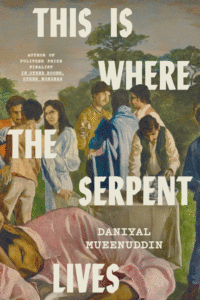
It’s official! According to science, reading fiction makes you nicer.
The headlines about the benefits of reading just keep coming. If you spend enough time online, you know reading purportedly makes you a better entrepreneur, happier, less stressed, and “more human.” It also apparently makes you more socially adept: the idea is that fiction reveals truths about human interactions and interiority, which readers internalize and apply to their lives. Sure!
Though many of these links are merely anecdotal—“How reading Long Day’s Journey Into Night made me a better dad” and the like—several scientific studies have established a link between reading fiction and understanding other people. A 2013 study showed that reading a few pages of literary fiction improved participants’ immediate ability to discern people’s emotions from pictures of their eyes and faces, and those participants sometimes performed better on a Theory of Mind test where participants used visual and verbal cues to determine what someone was thinking or wanting. A 2006 study found that readers who knew more names of novelists demonstrated more social awareness.
But there’s been controversy over these studies’ legitimacy. The 2006 study only proves correlation, not causation; the 2013 study’s methodology was criticized in print. Researchers David Dodell-Feder and Diana I. Tamir set out to check the validity of existing research on the topic. They ran a meta-analysis on fourteen studies to check whether fiction reading causally improves social cognition—and they discovered that reading fiction has a small, statistically significant impact on social-cognitive performance. In other words, reading fiction makes you a little nicer and more socially aware.
Dodell-Feder and Tamir noted that the nature of the link between fiction and social awareness is still not fully clear; they recommended that future research investigate fiction’s impact on real-world and day-to-day social functioning. But in the meantime, keep reading that literary fiction and nailing that small talk. Let’s create that feedback loop.
[h/t Inc]
Walker Caplan
Walker Caplan is a Staff Writer at Lit Hub and a writer/performer from Seattle.



















